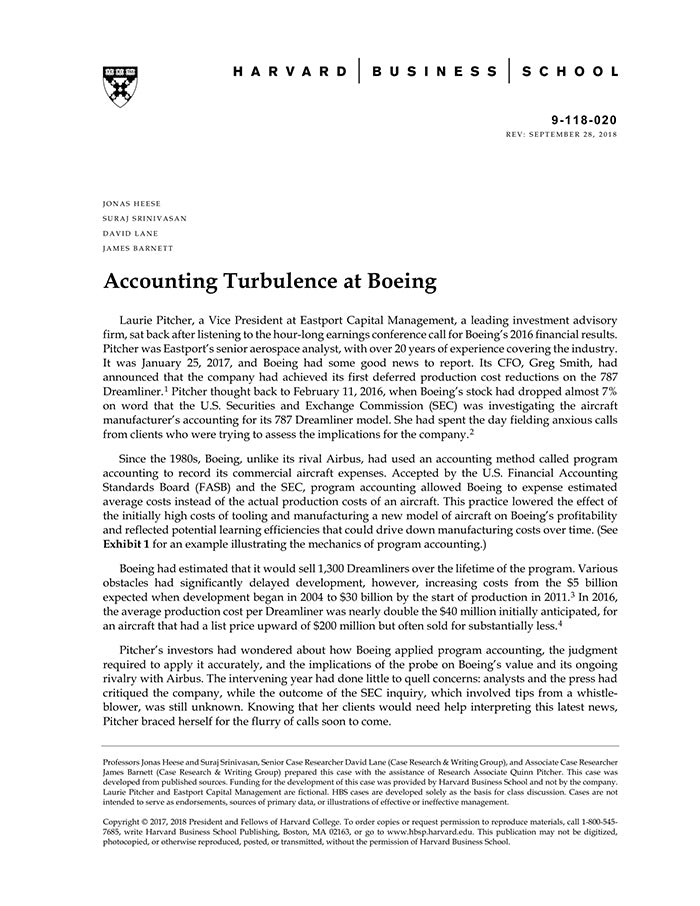Accounting Turbulence at Boeing
受取状況を読み込めませんでした
Unlike its rival Airbus, Boeing used a practice called program accounting to record its commercial aircraft expenses since the 1980s. Program accounting allowed Boeing to expense estimated average costs instead of the actual production costs of an aircraft. This practice lowered the effect of the initially high costs of manufacturing new aircraft models on Boeing's profitability and reflected potential learning efficiencies that could drive down manufacturing costs over time. By 2016, Boeing had deferred about $27 billion in production costs related to its 787 program. If Boeing had been forced to expense these costs, it would have shown profits of $1.4 billion between 2012 and 2016 instead of $25.2 billion, raising questions about Boeing's true profitability.
【書誌情報】
ページ数:25ページ
サイズ:A4
商品番号:HBSP-118020
発行日:2017/8/25
登録日:2018/3/15


